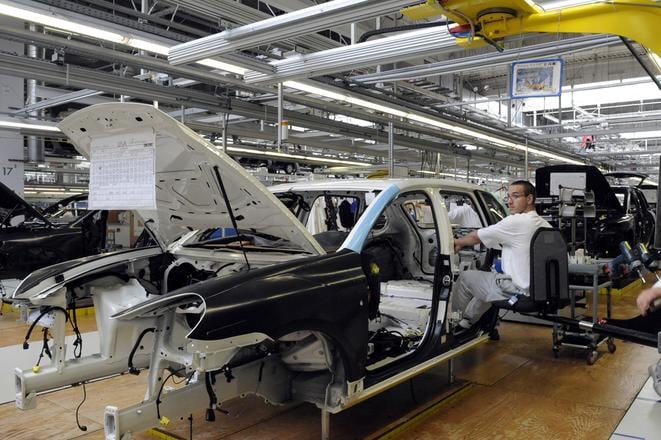If companies invest in Slovakia, it is mostly in manufacturing halls and production lines. The country continues to strengthen its reputation as an assembly hub, attracting little investment with higher added value.
In just over a year and a half – the duration of Robert Fico’s fourth government – investment incentives worth €391 million have been approved, with almost all directed towards industrial manufacturing.
The Chinese-Singaporean company Xinquan Slovakia Automotive Trim is building a factory in Petrovany near Prešov, which will employ 300 people. They will produce, for example, car dashboards and instrument panels, seat backs, and armrests.
The Italian company Technogym E.E. is investing in an extension to its manufacturing hall in Malý Krtíš, in southern Slovakia. It plans to expand production of fitness equipment, creating 90 jobs, including for seamstresses, upholsterers, paint shop operators, and welders.
A factory is also set to rise in Prešov, producing stainless steel water tanks for heat pumps. The company De Jong Slovakia, with American-Japanese owners, is expected to create 150 jobs.
These are examples of investment projects supported by the government over the past year.
Politicians always like to boast about such investments as they bring new jobs, often to regions suffering from shortages.
However, the overall picture of investment aid reveals Slovakia’s struggle to shed its reputation as a mere assembly workshop for foreign companies.


 The overall picture of investment aid reveals Slovakia’s struggle to shed its reputation as a mere assembly workshop for foreign companies. (source: TASR)
The overall picture of investment aid reveals Slovakia’s struggle to shed its reputation as a mere assembly workshop for foreign companies. (source: TASR)